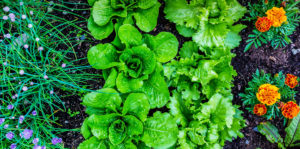Some things are just better together, like cookies and milk. You may not know that many plants have particular companions that support one another’s growth. The right combination of plants can lead to more flowers, larger and tastier fruit yields, and even natural pest control. Talk about best friends for life! Here are the basics of companion planting for your South Florida garden.
What Is Companion Planting?
Companion planting means growing plants that mutually benefit each other in some way or another. These benefits may be simply ornamental, such as the ‘thrillers,’ ‘fillers,’ and ‘spillers’ in your containers, or they may have more complex interactions that affect pollination, flavor, and pest activity. In the simplest terms, companion plants are just natural friends!
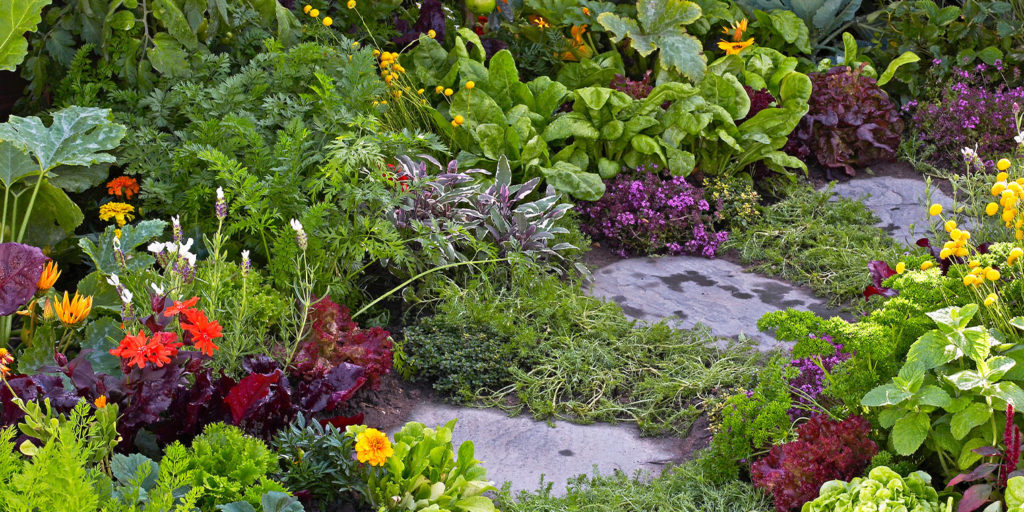
Companion Planting for Fruit and Vegetable Gardens
You can find some of the most profound benefits of companion planting in edible gardens. Not only do these combinations improve your garden’s performance, but they also make creating layouts in your raised beds much more straightforward! Some of the ways companion planting can benefit your fruits and vegetables include:
- Pollination support: Interplanting nectar and pollen-rich flowers with fruit and vegetable plants attract more pollinators to the area, increasing the pollination rate for your edibles.
- Nutrient availability: Not only does biodiversity promote healthier soil, but some plants such as beans and other pulses support a natural process called nitrogen fixation. Nitrogen fixation is a complex reaction between soil microorganisms that breaks nitrogen down to a more beneficial format for your plants.
- Weed control: Cover crops act as a natural mulch to shade the soil, keeping it cool and moist between waterings or rainy spells—a major benefit in the Fort Lauderdale heat!
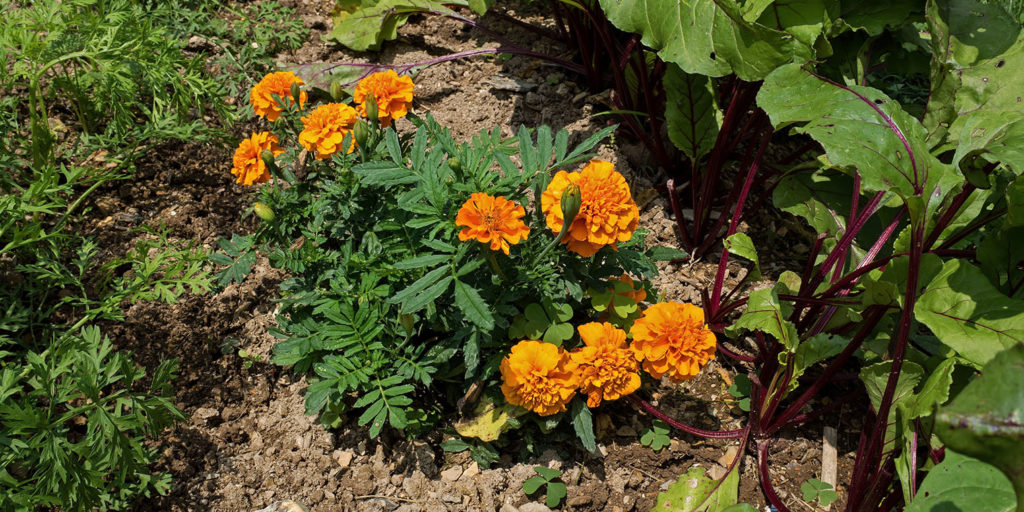
- Pest control: Certain plants, such as marigolds, are known to repel common pests. While not as effective as a store-bought insecticide, these plants can help to regulate pest populations in a safe and environmentally-responsible way.
- Improved flavor: Some gardeners swear that certain plant combinations even improve the taste of the final yield! Flavor quality is somewhat subjective, but it’s certainly a lot of fun to experiment and try for yourself!
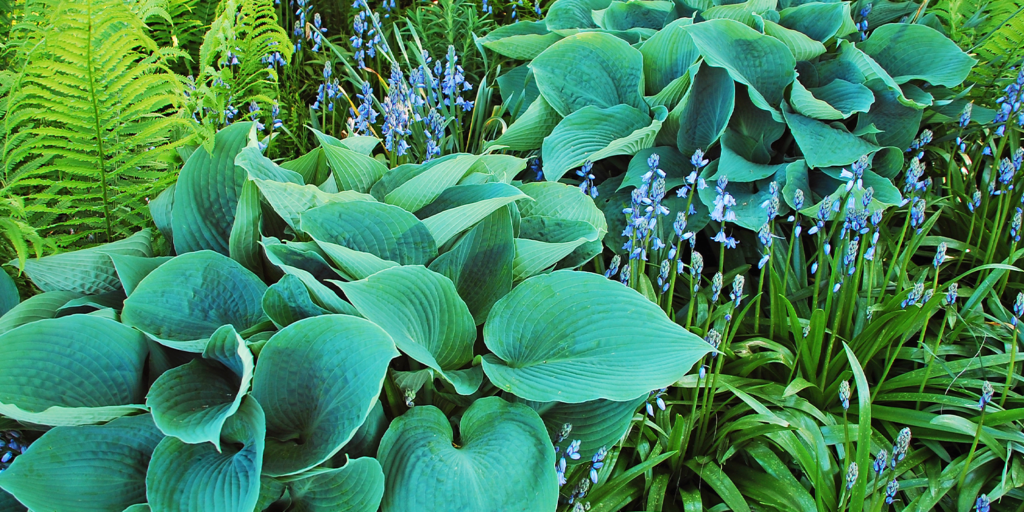
Companion Planting Ornamentals
Ornamental plants can also have companions! Common ways to “companion plant” your landscape include:
- Pairing plants of different heights to bring layers of color to the landscape
- Combining different textures to add depth and interest
- Playing with colors, such as combining complementary or contrasting colors or echoing the same color across multiple flower species
- Choosing container annuals with the same care needs and bloom times
In essence, a great deal of ornamental gardening involves ‘matchmaking’ plants that will work together in performance and design.
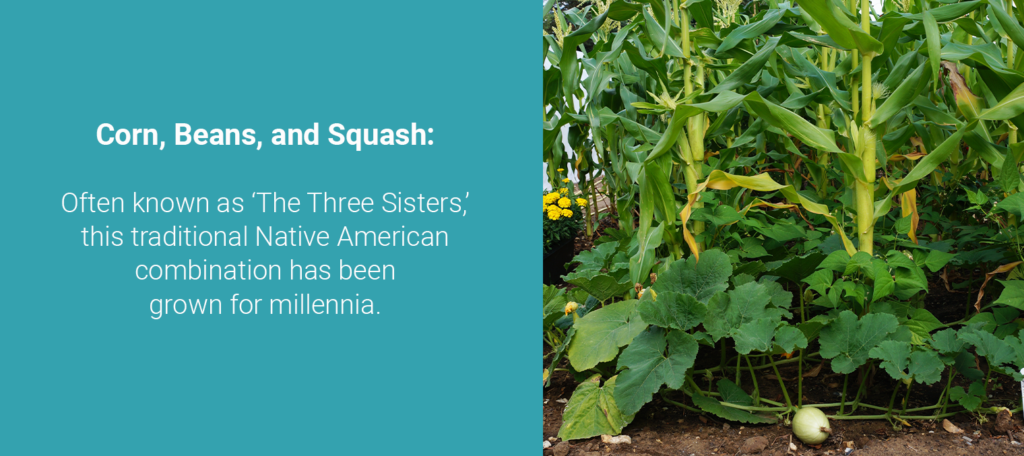
Companion Planting Ideas
Plants interact with each other in all kinds of interesting and unexpected ways, but some combinations consistently work well together. Here are a few to try in your garden!
- Corn, beans, and squash: Often known as ‘The Three Sisters,’ this traditional Native American combination has been grown for millennia. The corn is a support structure for the beans, the squash shades the soil, and the beans improve nitrogen availability for the corn and squash.
- Strawberry and borage: Not only does borage provide natural pest control for your berries, but the purple flowers look beautiful alongside the red fruit.
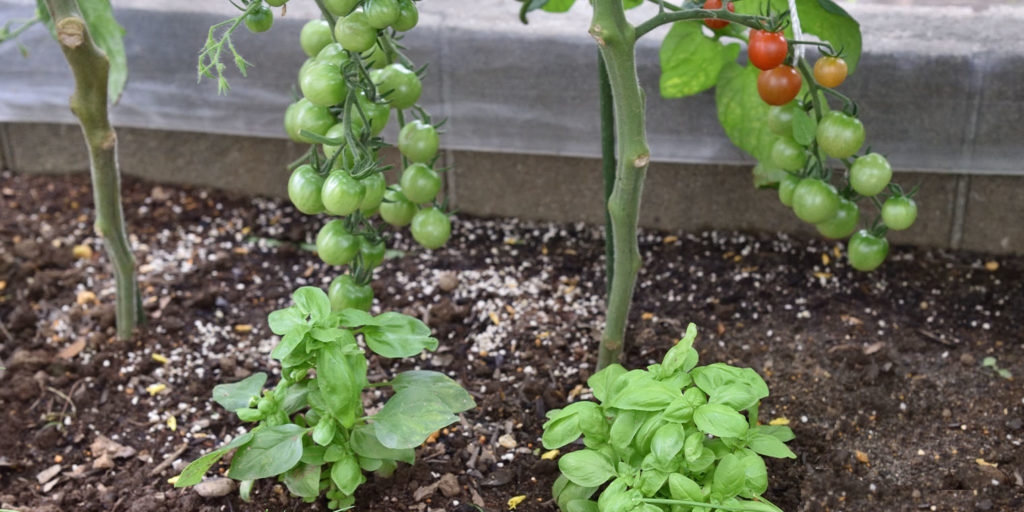
- Tomatoes and basil: Basil is a natural deterrent for hornworms and many fly species, but it’s also said to improve the flavor of your tomatoes. Only one way to find out!
- French marigolds and zucchini: French marigolds repel pests and attract pollinators—perfect for the zucchini plant, which requires pollination to bear fruit.
Curious to find companions for your favorite garden plants? Visit us at Living Color Garden Center in Fort Lauderdale to find the perfect match!

